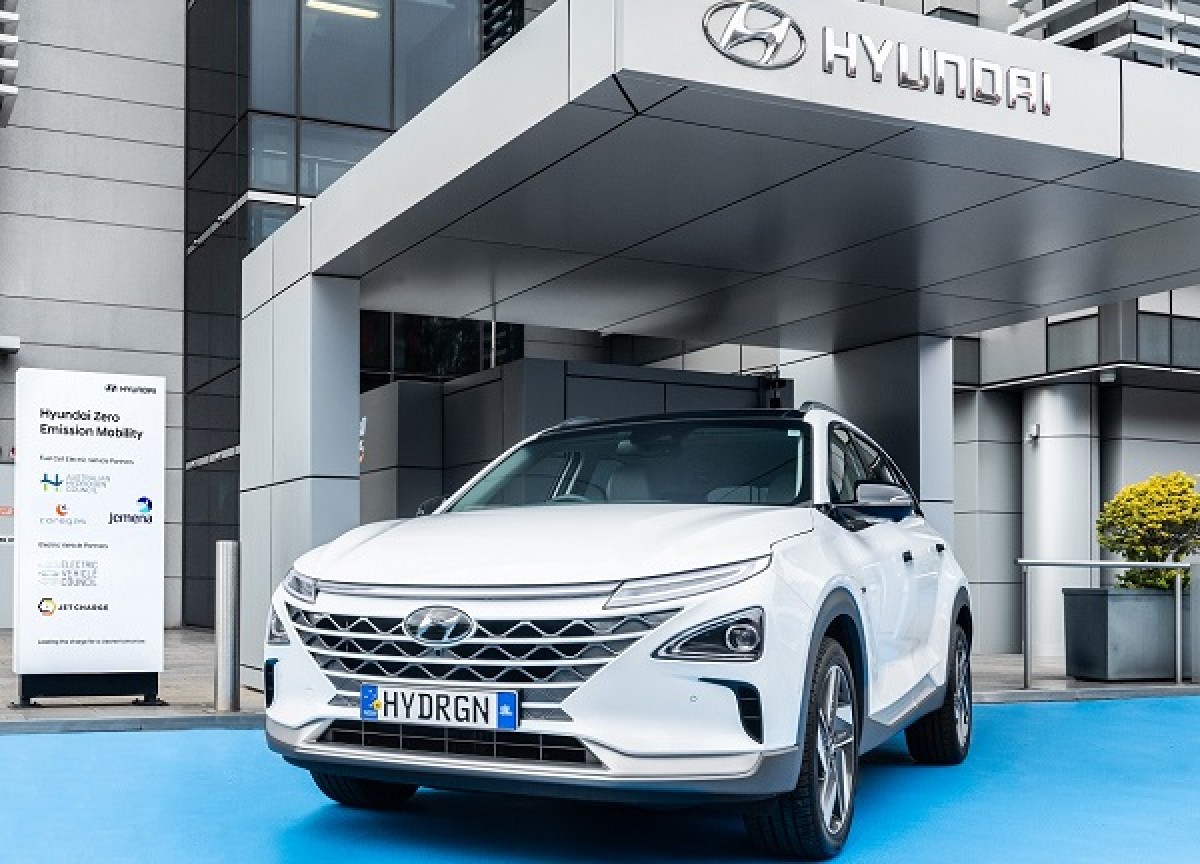The Queensland government will explore whether hydrogen fuel cells can be used for heavy freight trains, preceding that news with the launch of what is believed to be the first hydrogen powered police car in the southern hemisphere.
The Queensland government came out with two rather novel hydrogen announcements on Monday, saying Australia’s largest rail freight company, Aurizon, and global mining company Anglo American will undertake a feasibility study into using hydrogen fuel cell and battery hybrid power units for bulk rail freight operations.
The state government also commissioned Australia’s first hydrogen-powered police vehicle, assigning the North Brisbane Domestic and Family Violence Vulnerable Persons Unit a Hyundai Nexo fuel cell electric vehicle (FCEV).
Hydrogen’s application in transport is still debated, with many experts predicting the technology is highly unlikely to overtake electric vehicles (EVs) for passenger cars and other light vehicles. Hydrogen does, however, seem to hold more promise for heavy transport vessels like ships and airplanes, though this too is still debated. Globalisation has made transport one of the fastest growing sectors for emissions – it accounts for around 14% of Queensland’s total emissions and 17% nationally.
Queensland’s Minister for Energy Renewables and Hydrogen Mick de Brenni, however, seems to acknowledge in his statement on the news that the projects are less about a hydrogen technology coup and more about kickstarting domestic demand, creating an ecosystem for green hydrogen establish itself.
Hydrogen fuel cell freight trains
Headquartered in London, mining company Anglo American has been developing green hydrogen solutions for its ultra-class 290 tonne payload mine haul trucking fleet.
Its agreement with Aurizon, however, marks the first time its hydrogen fuel cell and battery hybrid power unit technologies have been tested outside the trucking program.
“The feasibility study will focus on the potential deployment of Anglo American’s hydrogen power technology on Aurizon’s Moura rail corridor and also the Mount Isa Rail corridor,” Queensland’s Deputy Premier and Minister for State Development Steven Miles said.
“Imagine new economy minerals which can be used to make batteries to store renewable energy, being moved from the North West Minerals Province to Townsville, on a train powered by hydrogen made from Queensland sunshine,” he added.
Having set a target to reach net zero operational emissions by 2050, Aurizon is also doing research and development for battery-powered trains with a number of industry parties and Australian universities.
“Hydrogen offers enormous opportunity in decarbonising and continuing to improve the competitiveness of Australia’s export supply chains,” Aurizon’s Managing Director & CEO Andrew Harding said.
“This is especially true for bulk products underpinning the Australian economy including minerals, agricultural products and fertilisers, industrials and general freight.”
Precisely what role the state government will play in the feasibility study isn’t clear, it may simply be one of financial or regulatory support, though this isn’t specified in its statement.
Hydrogen powered police
The Queensland government has also bought a Hyundai Nexo FCEV for its Brisbane police team.
The singular vehicle will be something of a test vehicle, allowing the North Brisbane Domestic and Family Violence Vulnerable Persons Unit, where the car has been assigned, to assess how well FCEVs work in the context of real world policing. Minister de Brenni said this will in turn pave the way for fuel cell technologies to be used in broader applications.
“Importantly, [Hyundai Nexos] offer ultra-quick refuelling and high efficiency – they will be able to be refuelled commercially in just five minutes,” the minister said. “Hydrogen fuel cell electric vehicles also have a better range than regular battery-powered options that are available now on the market.
“Nexo broke records in May this year by traveling 887 kilometres on a single charge and Hyundai tells us this is the first fuel cell propelled police vehicle in the southern hemisphere.
“Queensland police will test this emerging electric vehicle technology, initially refuelling at the Redlands Research Facility, and following that at Queensland’s first commercial hydrogen refueller,” the minister added.
The Nexo joins 13 Mitsubishi EVs now being used by police for general duties, traffic enforcement and investigations.
The state government said its Nexo is one of five hydrogen FCEVs now being trialed across its fleet, though it did not specify where the other four were used aside from mentioning frontline workers including health staff, educators and community workers.
The Nexo trial is being managed by QFleet.
Thanks to Bella Peacock @ PV Magazine – December 14, 2021



Leave a Reply